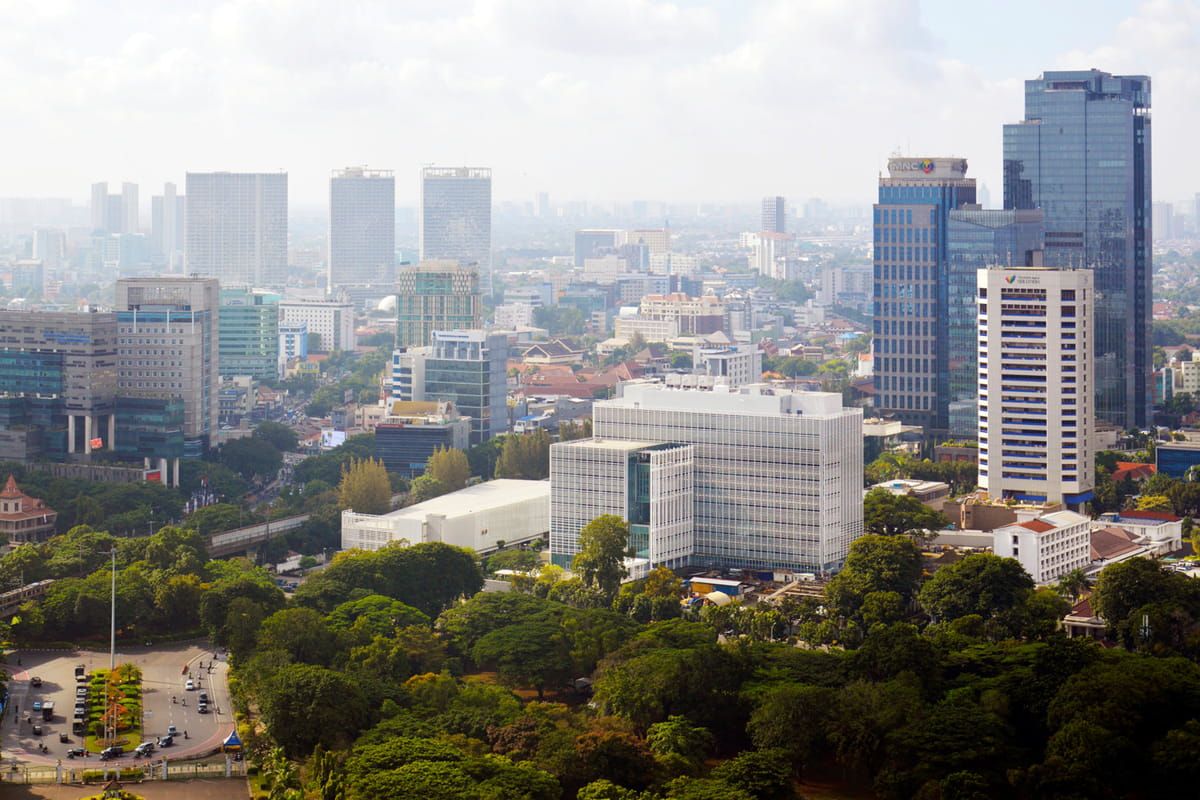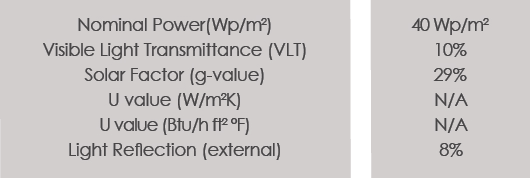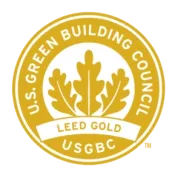
US EMBASSY OF JAKARTA · JAKARTA, INDONESIA
RENOVATION
The embassy in Jakarta features a cutting-edge design incorporating Onyx Solar’s amorphous silicon semi-transparent glass on a photovoltaic canopy. Each individual glass panel was customized to offer a 10% Visible Light Transmission (VLT) and efficiently filters out 99% of harmful UV radiation. The canopy contribute significantly to reduce the building’s carbon footprint while concurrently curbing its electricity expenses. The decision to use Onyx Solar’s amorphous silicon semi-transparent glass for the U.S. Embassy in Jakarta is ideal for the building’s environmental needs and sustainability goals. Located in a tropical climate, the embassy requires solutions that improve energy efficiency and comfort.
The photovoltaic glass’s 29% solar factor (g-value) helps control heat gain, which is crucial for managing Jakarta’s warmth and humidity. By reducing solar heat entering the building, the canopy decreases the need for air conditioning, leading to energy savings and better indoor comfort. Each glass panel reaches 40Wp per square meter, turning the canopy into a renewable energy source. This helps lower the embassy’s dependency on external power, reducing both electricity costs and its carbon footprint. The canopy reflects the embassy’s dedication to environmental responsibility and clean energy.
Visually, the semi-transparent glass integrates seamlessly with the embassy’s architecture, adding modern appeal. Onyx Solar’s photovoltaic glass was tailored to meet both the functional and aesthetic needs of the project, making it the perfect choice for the U.S. Embassy in Jakarta.



The United States Embassy is a key diplomatic institution, representing the U.S. government in countries around the world. Dedicated to fostering international relations and promoting mutual understanding, U.S. embassies play a vital role in supporting diplomacy, security, and development. In line with global sustainability initiatives, many U.S. embassies, including those involved with Onyx Solar, are increasingly integrating renewable energy solutions and green building technologies. By incorporating photovoltaic materials and energy-efficient practices, these embassies are setting an example for sustainable architecture in diplomatic buildings worldwide.



